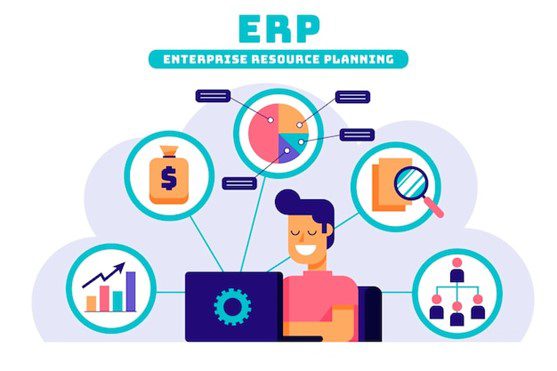
Introduction to ERP Systems
Enterprise Resource Planning (ERP) systems have revolutionized the way businesses operate by integrating various functions and departments onto a single platform. These systems provide organizations with a centralized database and a suite of tools to manage their operations efficiently. One of the key benefits of an ERP system is its ability to enhance compliance and regulatory reporting. In this article, we will explore the importance of compliance and regulatory reporting, the challenges faced by businesses in meeting industry-specific requirements, and how an ERP system can help overcome these challenges.
Importance of Compliance and Regulatory Reporting
Compliance and regulatory reporting are critical for businesses operating in various industries. Regulatory bodies, such as government agencies and industry associations, impose specific guidelines and standards that organizations must adhere to. Failure to comply with these regulations can result in legal consequences, financial penalties, and damage to the organization’s reputation. Compliance and regulatory reporting ensure that businesses operate ethically, transparently, and within the boundaries set by the governing bodies.
Challenges Faced by Businesses in Meeting Industry-Specific Requirements
Meeting industry-specific compliance and regulatory requirements can be a daunting task for businesses. Each industry has its own set of regulations, standards, and reporting obligations that organizations must fulfill. These requirements are constantly evolving, making it difficult for businesses to keep up with the changes. Additionally, manual processes and disparate systems can introduce errors, inconsistencies, and delays in compliance and reporting activities. Lack of integration and visibility further complicates the situation, as businesses struggle to gather and analyze the necessary data.
How an ERP System Enhances Compliance and Regulatory Reporting
An ERP system plays a crucial role in enhancing compliance and regulatory reporting for businesses. By centralizing data and processes, an ERP system provides a unified view of the organization’s operations, making it easier to track, monitor, and report on compliance requirements. With real-time data updates and automated workflows, businesses can ensure that they are consistently meeting the necessary regulations. An ERP system also enables organizations to generate accurate and timely reports, reducing the risk of errors and non-compliance.
Features and Benefits of Xorosoft ERP Solution
Xorosoft ERP solution is a comprehensive software package designed to meet the compliance and regulatory reporting needs of businesses. It offers a range of features and benefits that enable organizations to stay ahead of industry-specific requirements. With Xorosoft ERP, businesses can automate compliance processes, such as data collection, validation, and reporting. The system also provides built-in templates and workflows that align with industry standards, ensuring that organizations are always compliant. Real-time data analytics and reporting capabilities enable businesses to monitor their compliance status in real-time and make informed decisions.
Integrating an ERP System with an Inventory Management System and Accounting Software
To maximize the benefits of an ERP system, it is crucial to integrate it with other essential business systems, such as an inventory management system and accounting software. Integration between these systems ensures that data flows seamlessly, eliminating duplication and improving accuracy. For example, when an order is placed in the ERP system, it can automatically update the inventory management system to reflect the change in stock levels. Similarly, financial transactions recorded in the ERP system can be synchronized with the accounting software, ensuring accurate and up-to-date financial reporting.
Tips for Selecting the Right ERP System for Your Business
Selecting the right ERP system for your business is a critical decision that requires careful consideration. Here are some tips to help you make an informed choice:
- Assess your business requirements and objectives: Understand your organization’s specific needs and goals to determine the features and functionalities required in an ERP system.
- Evaluate scalability and flexibility: Choose an ERP system that can grow and adapt with your business, accommodating future changes and expansions.
- Consider user-friendliness and training: Ensure that the ERP system is intuitive and easy to use, minimizing the learning curve for your employees. Look for vendors that offer comprehensive training and support.
- Assess integration capabilities: Determine whether the ERP system can seamlessly integrate with other essential business systems, such as CRM, HR, and logistics.
- Evaluate vendor reputation and support: Research the vendor’s track record, customer reviews, and support services to ensure a reliable partnership.
Services Offered by Xorosoft for Implementing and Maintaining ERP Systems
Xorosoft offers a range of services to help businesses implement and maintain ERP systems effectively. Their team of experts provides comprehensive consulting, customization, and implementation support to ensure a seamless transition to the ERP system. Xorosoft also offers training programs to help businesses maximize the benefits of their ERP solution. Additionally, their dedicated support team provides ongoing assistance, troubleshooting, and system upgrades to keep the ERP system running smoothly.
Conclusion
In conclusion, an ERP system is a powerful tool that enhances compliance and regulatory reporting for businesses. By centralizing data, automating processes, and providing real-time insights, an ERP system enables organizations to stay ahead of industry-specific requirements. Xorosoft ERP solution offers a comprehensive set of features and benefits that help businesses streamline their compliance activities. By integrating an ERP system with other essential business systems, such as inventory management and accounting software, organizations can further optimize their operations. When selecting an ERP system, it is essential to consider your business requirements, scalability, integration capabilities, and vendor support. Book a demo with Xorosoft today to explore how their ERP solution can enhance compliance and regulatory reporting for your business.









